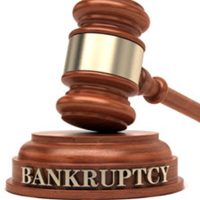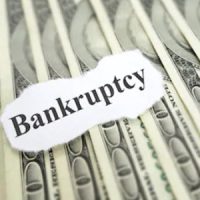Category Archives: Bankruptcy

Does Bankruptcy Make it Hard to Buy a Car?
Yes. If people say otherwise, they don’t know what they’re talking about or they’re telling you what you want to hear. Bankruptcy makes it hard, but not impossible, to buy a car. The same principle applies to other major purchases, including a house. In fact, in most cases, debtors can buy cars while they’re… Read More »

Student Loan Forgiveness: Supreme Court Refuses to Reinstate Biden’s Plan
In an unsigned August 2024 order, the Justices stated that they would continue to block a student loan cancellation plan while the appeals process plays out in Biden vs. Missouri et al. The order leaves the injunction from the U.S. Court of Appeals for the 8th Circuit in place for now. The Education Department… Read More »

What Not to Do After Filing Chapter 7
Many people, including famous industrialist Henry Ford, recovered from bankruptcy by making a new plan and sticking to that plan. Like many of us, Ford was a slow learner. He filed bankruptcy twice, in 1899 and 1901. The Detroit Automobile Company went bankrupt because Ford was a perfectionist. The Henry Ford Company went bankrupt… Read More »

Why is Bankruptcy a Good Option?
Filing bankruptcy is a good option if your non-housing expenses, such as vehicle payments, credit card bills, and medical bills, exceed 36 percent of your net income. If that’s the case, you have more debt than you can comfortably repay. People in these situations have two basic options. They can sit back and watch… Read More »

Are Chapter 7 Bankruptcies Ever Denied?
No, unless the debtor fails to meet one of the two basic qualifications for bankruptcy. All debtors must be honest and unfortunate. Honest debtors aren’t trying to manipulate the system for their own purposes, and unfortunate debtors are, well, unfortunate. More on these things below. Honest and unfortunate debtors receive all the benefits of… Read More »

Bankruptcy or Debt Negotiation: Which is Best?
The answer to this question, and most others like it, is “it depends.” Most financial planners believe a family’s debt-to-income ratio (DTI) should not exceed 15 percent of net income. That’s unrealistic for most people. If a family earns $6,000 a month and pays $1,500 rent, that’s already 15 percent, before they make their… Read More »

How Much Will the IRS Accept for an Offer in Compromise?
“Compromise” usually implies give and take. But for a taxpayer, an IRS offer in compromise is all give and no take. IRS bureaucrats decide if a taxpayer qualifies for OIC relief. IRS bureaucrats also decide whether an offer in compromise is reasonable. So, the IRS could easily insist that OIC applicants pay the entire… Read More »

Is Chapter 13 Right for Me?
Especially for some people, the moral imperative to repay debts is very high. But reality gets in the way. Credit cards are a good example. The average credit card interest rate is so high that these debts quickly spiral out of control. Similarly, there’s a practical obligation to pay secured debts, like a home… Read More »

Should I File Chapter 7 or Chapter 13?
The answer to this question usually depends on the kinds of debts you have. Some people have issues with unsecured debts, like credit cards. The average credit card interest rate is over 20 percent, so the balance shoots up quickly. Other people have issues with delinquent unsecured debt, like past-due auto loan payments. Legally,… Read More »

Does Bankruptcy Stop Foreclosure?
Yes. As soon as debtors file their voluntary petitions, Section 362 of the Bankruptcy Code stops most creditor adverse actions. Additionally, consumer bankruptcy exempts home equity, making it almost impossible for the trustee (person who manages a bankruptcy for a judge) to liquidate a home. Some informal exemptions are available that extend this protection… Read More »


